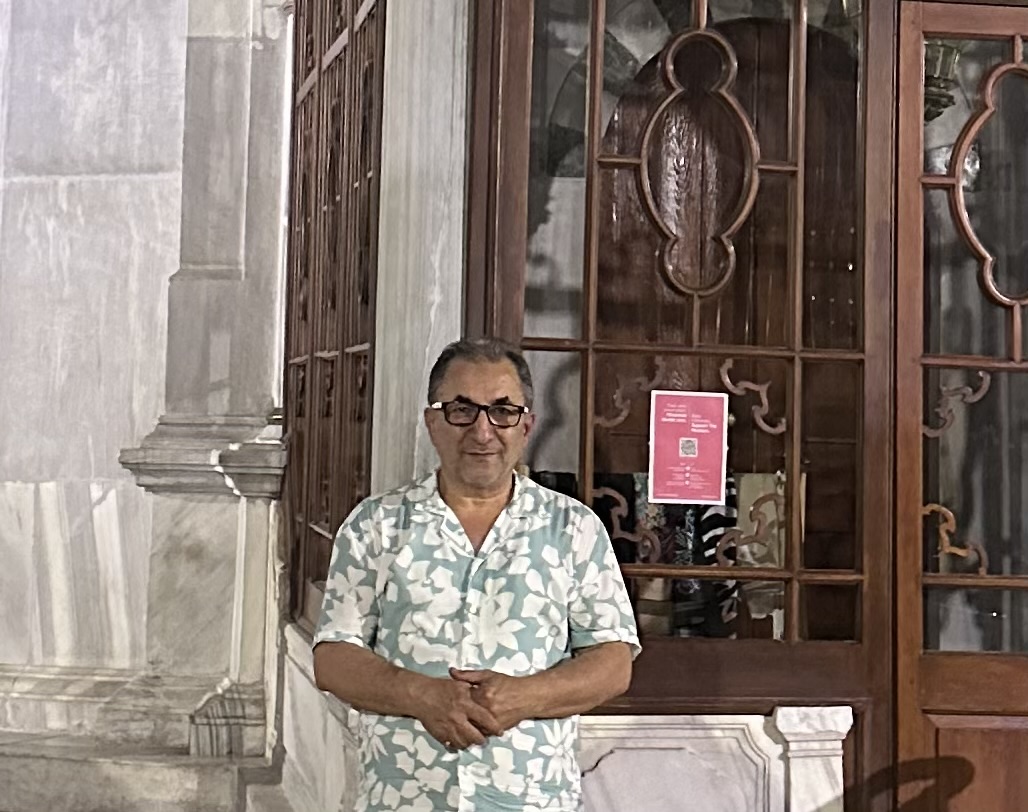 After a considerable hiatus, the economy has once again taken center stage in Türkiye's political landscape, a shift I find somewhat beneficial; during times when the economy was relatively stable, politics had shifted its focus from discussing economic issues to cultural divisions, and now with this realignment, we can better perceive the clarity it brings. The 80s, 90s, and the first decade of the 2000s were largely dominated by cultural identity struggles, a phenomenon we can now see in a clearer light. The era was consumed by discussions surrounding the struggle for cultural identity among various groups. However, as I look back, it's evident that the time has passed for this emphasis. It's worth noting that during this era, we were among the few who dared to acknowledge the unsustainability of this approach; we argued that the fusion of culture and politics would not resolve cultural issues, but rather exacerbate them, creating an intricate web of challenges. The 80s, 90s, and early 2000s were marked by intense cultural identity struggles, creating a backdrop wherein politics took a backseat to cultural and identity conflicts. This retrospective view offers us a clear perspective of the situation. Cultural identity conflicts were at the forefront during these decades, overshadowing any serious political or economic discussions. However, a more astute analysis reveals that the emphasis on cultural identity was overshadowed by the economic struggles that enveloped society. Looking back, the alignment of politics and culture is a trap to be avoided, for it leads to impasses and complexities that are difficult to navigate. The intertwining of culture and politics does not provide a constructive solution to these dilemmas, but rather exacerbates them. Despite the prevalent narrative, politics primarily revolves around the materialistic concerns that envelop humanity, and we have always believed that tackling cultural issues within this context will yield meaningful results. If politics must confront these issues, then it should prioritize the economy over culture—a stance I have consistently defended. The conceptualization of economic politics holds a particular significance, a point I've always appreciated. Unfortunately, as early as the 1950s, the late W. Mills astutely observed and criticized how capitalism poisoned academia, resulting in excessive specialization and the separation of disciplines such as sociology, history, and political science. As universities formed specialized departments, their holistic approach to understanding human conditions diminished. The academic landscape is now filled with individuals who proclaim, 'I am a historian; I know nothing of sociology,' or 'As an economist, I am not concerned with politics,' a situation I do not reject outright, yet if each specialization becomes insular and self-contained, ultimately encouraged to do so, it becomes clear that this is not a coincidence. Rather, it is a product of a controlled political agenda to dumb down humanity as a whole. Capitalism thrives on a dumbed-down humanity, and this desire doesn't necessarily require obscurantism; it can be masked under the pretense of 'educating humanity.' To be clearer: the issue isn't a dichotomy between the enlightenment of education and the darkness of ignorance. By employing both instruction and education, the same desire can be realized. Capitalism has co-opted education in the guise of improving quality, and yet the outcome has not matched this promise. In the operational world, as specialization leads to progress in one realm, it simultaneously blinds us in another.
After a considerable hiatus, the economy has once again taken center stage in Türkiye's political landscape, a shift I find somewhat beneficial; during times when the economy was relatively stable, politics had shifted its focus from discussing economic issues to cultural divisions, and now with this realignment, we can better perceive the clarity it brings. The 80s, 90s, and the first decade of the 2000s were largely dominated by cultural identity struggles, a phenomenon we can now see in a clearer light. The era was consumed by discussions surrounding the struggle for cultural identity among various groups. However, as I look back, it's evident that the time has passed for this emphasis. It's worth noting that during this era, we were among the few who dared to acknowledge the unsustainability of this approach; we argued that the fusion of culture and politics would not resolve cultural issues, but rather exacerbate them, creating an intricate web of challenges. The 80s, 90s, and early 2000s were marked by intense cultural identity struggles, creating a backdrop wherein politics took a backseat to cultural and identity conflicts. This retrospective view offers us a clear perspective of the situation. Cultural identity conflicts were at the forefront during these decades, overshadowing any serious political or economic discussions. However, a more astute analysis reveals that the emphasis on cultural identity was overshadowed by the economic struggles that enveloped society. Looking back, the alignment of politics and culture is a trap to be avoided, for it leads to impasses and complexities that are difficult to navigate. The intertwining of culture and politics does not provide a constructive solution to these dilemmas, but rather exacerbates them. Despite the prevalent narrative, politics primarily revolves around the materialistic concerns that envelop humanity, and we have always believed that tackling cultural issues within this context will yield meaningful results. If politics must confront these issues, then it should prioritize the economy over culture—a stance I have consistently defended. The conceptualization of economic politics holds a particular significance, a point I've always appreciated. Unfortunately, as early as the 1950s, the late W. Mills astutely observed and criticized how capitalism poisoned academia, resulting in excessive specialization and the separation of disciplines such as sociology, history, and political science. As universities formed specialized departments, their holistic approach to understanding human conditions diminished. The academic landscape is now filled with individuals who proclaim, 'I am a historian; I know nothing of sociology,' or 'As an economist, I am not concerned with politics,' a situation I do not reject outright, yet if each specialization becomes insular and self-contained, ultimately encouraged to do so, it becomes clear that this is not a coincidence. Rather, it is a product of a controlled political agenda to dumb down humanity as a whole. Capitalism thrives on a dumbed-down humanity, and this desire doesn't necessarily require obscurantism; it can be masked under the pretense of 'educating humanity.' To be clearer: the issue isn't a dichotomy between the enlightenment of education and the darkness of ignorance. By employing both instruction and education, the same desire can be realized. Capitalism has co-opted education in the guise of improving quality, and yet the outcome has not matched this promise. In the operational world, as specialization leads to progress in one realm, it simultaneously blinds us in another.
Capitalism emphasizes economism, separating economics from political structure; the prevailing notion posits that economics, much like nature, operates under immutable laws, further isolating economics not only from politics but also from morality—a move to cement the unquestionability of capitalism. Today, economism accepts politics as mere 'policy' while dismissing its broader 'polity' aspect. This neutering wasn't enough; they flattened economics into financial economics as well. Now, everywhere we turn, we encounter financiers who masquerade as economists, adorning their misconceptions with a flashy jargon. Their conceited demeanor, grounded in ignorance, belittles everything beyond their narrow scope.
Capitalism dismantles our once-enlightened knowledge base that has existed since ancient times, akin to cotton scattered in the wind. What is commonly referred to as economic politics, or what I believe is more accurately termed 'political economics,' is in fact invaluable. It's about ensuring that economics supports politics, and vice versa. It requires maintaining the interplay between these two potent historical forces with disciplined awareness, avoiding overindulgence in either. Regarding expertise, it's fair to assess it as follows: a photograph captured from a dominant political angle is not exclusively political; just as in any photograph, it casts a relatively cloudy shadow over economics while keeping it within the frame. On the other hand, economic expertise does the opposite. It clarifies the economic aspects while obscuring the political facets with mist or clouds. Achieving complete clarity in a single photograph is impossible. The key is to compare photographs taken from different angles and evaluate them together.
The established payment regime still keeps the Dollar relatively stable, yet inflation is rampant in central and semi-central worlds indebted to it. Deflationary processes harboring scenarios of economic stagnation, regression, and collapse are spreading across the globe, particularly in China. In this world, the resurgence of political-economic thought is imperative. Yet, the revival of economics in politics doesn't stem from a recollection of political economics or economic politics' depth; it's happening at the level of reviving feeble economic policies meant to salvage appearances. Unfortunately, I fear that the vacuum created by this feebleness will be filled once again by distorted cultural identity conflicts and blood feuds...




